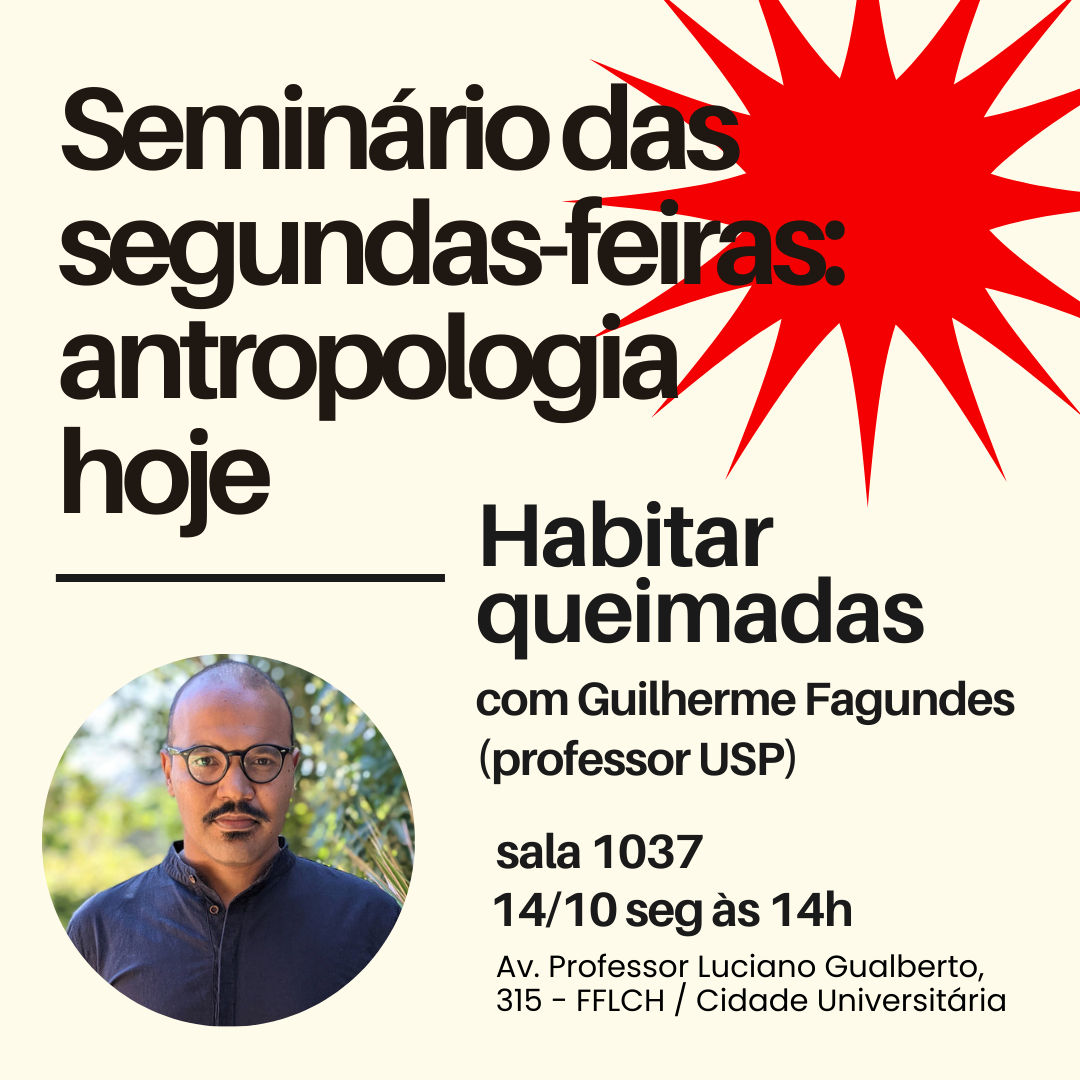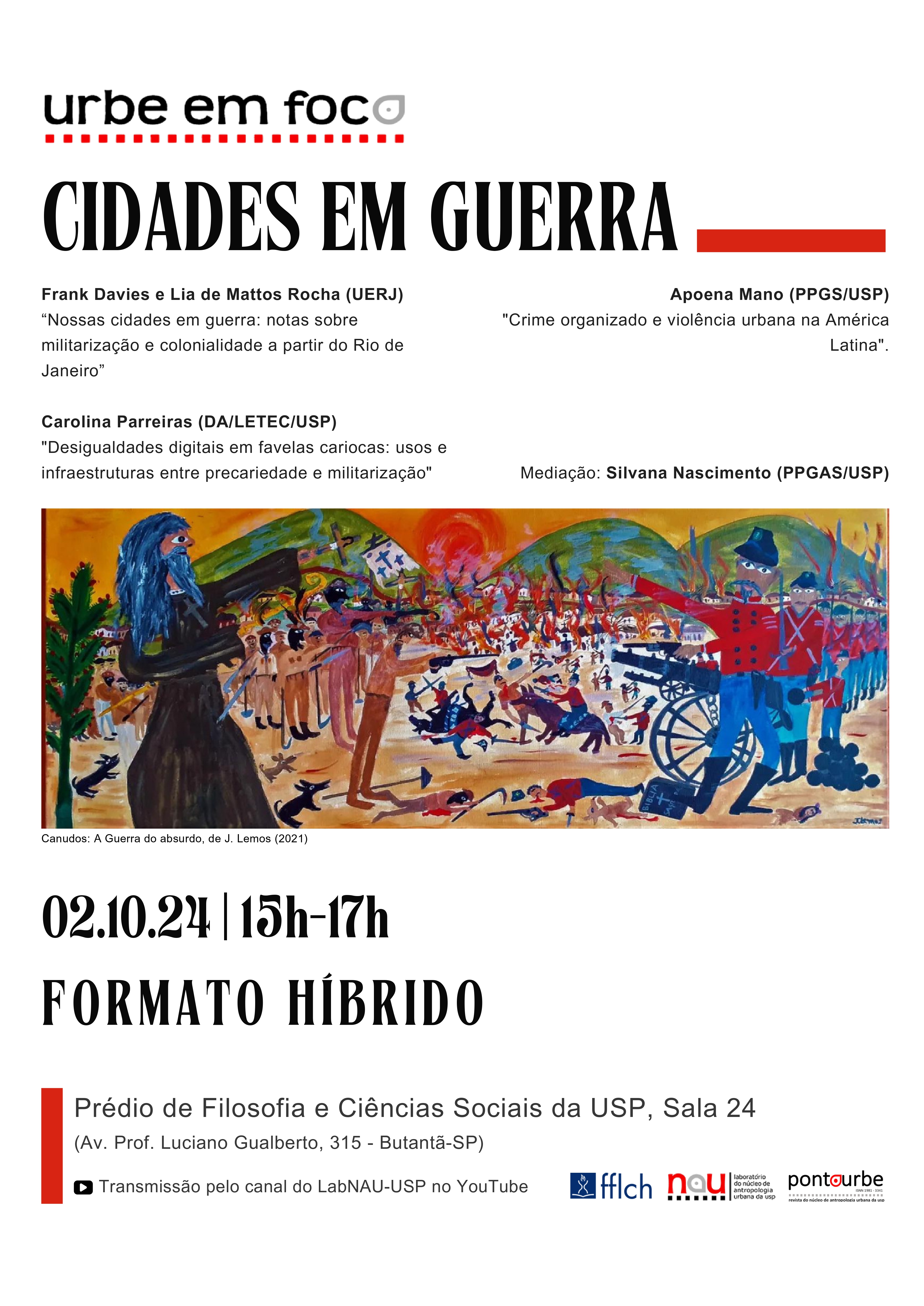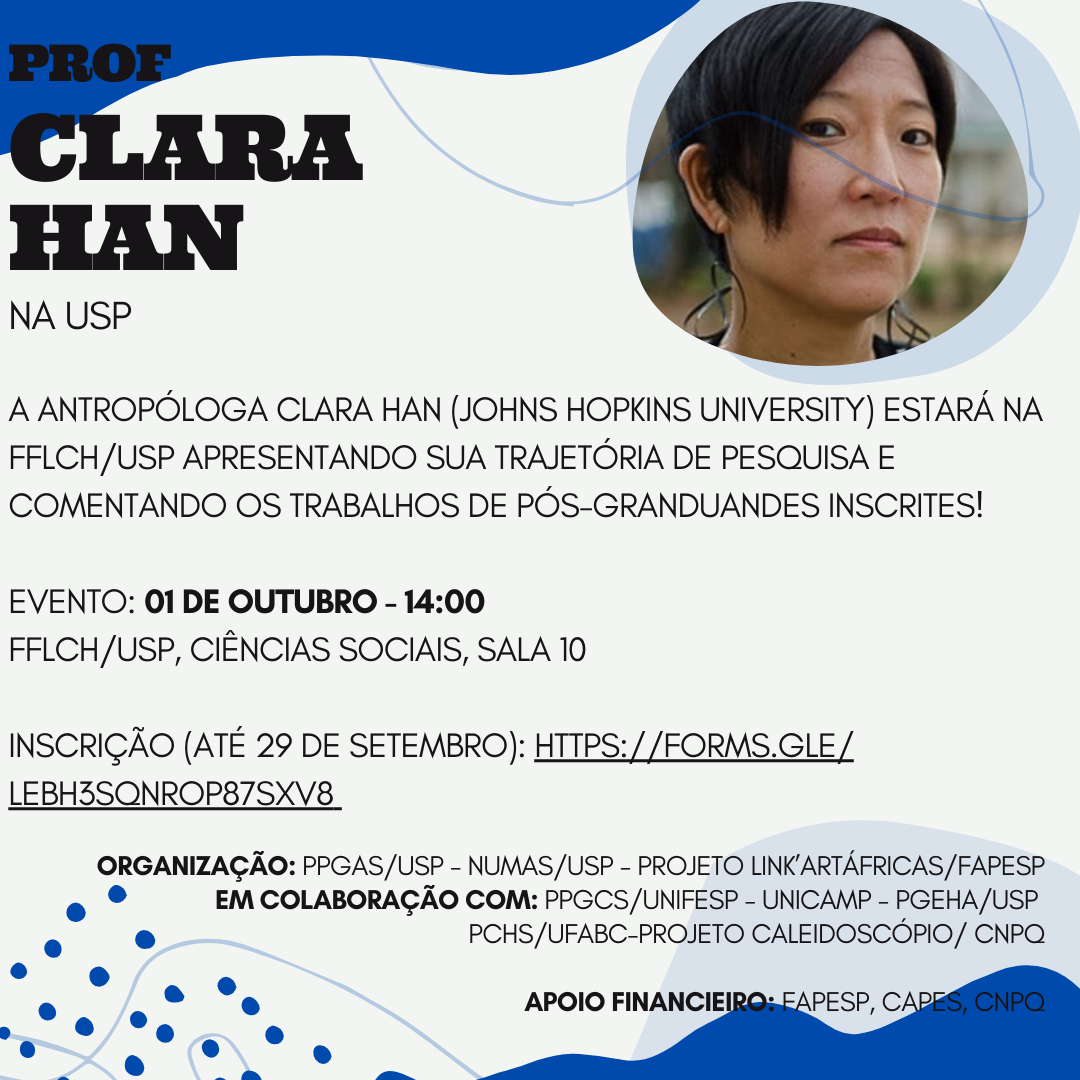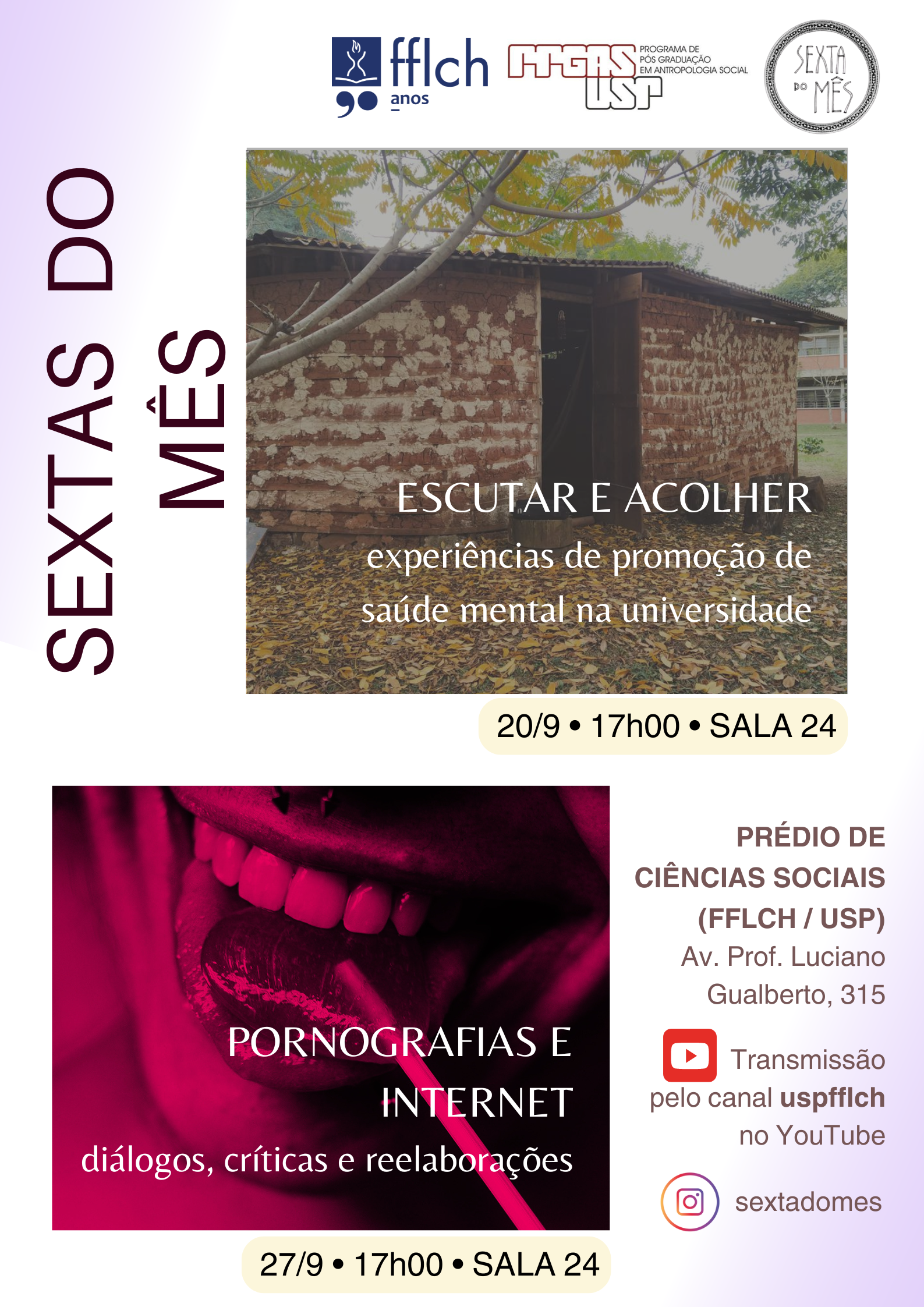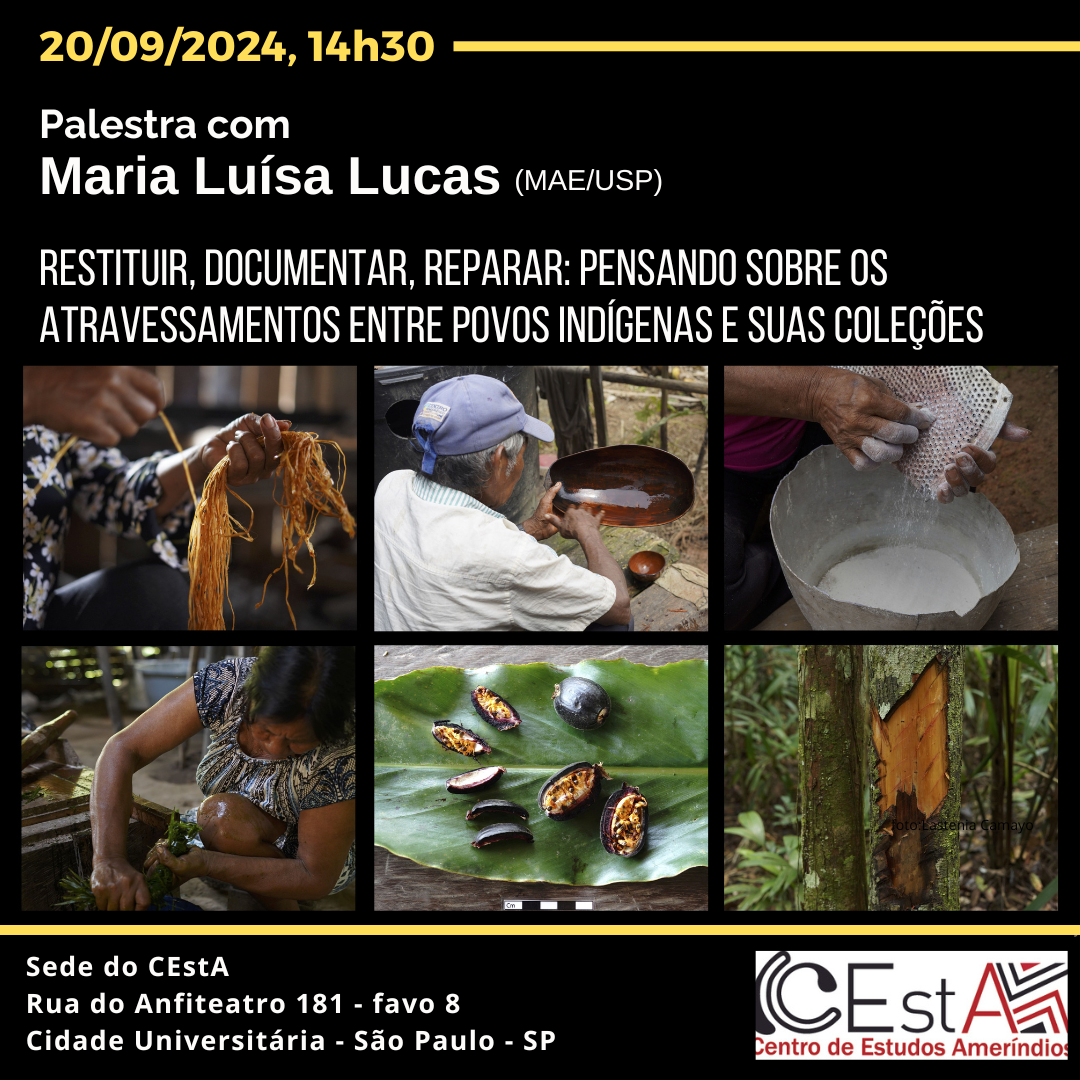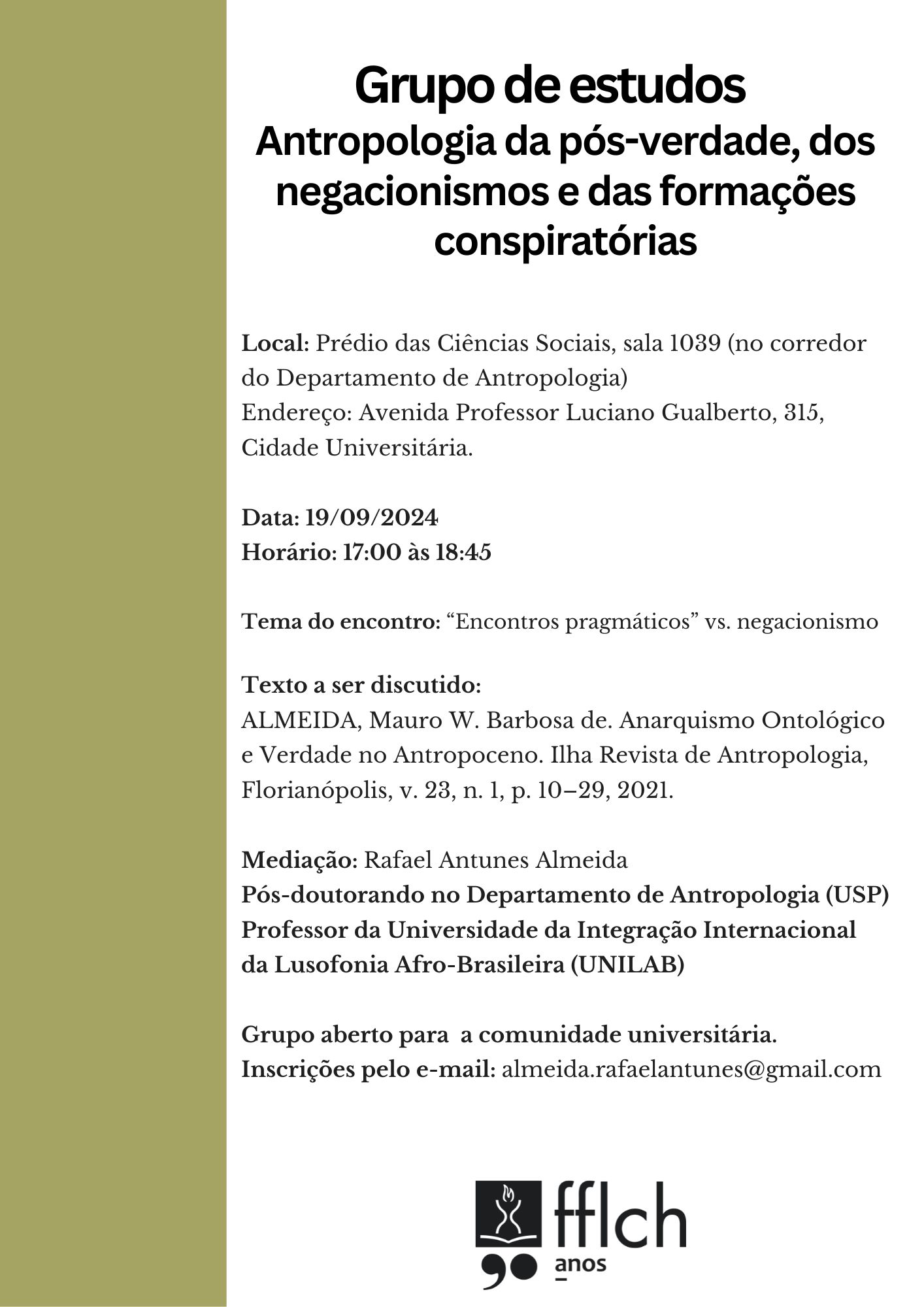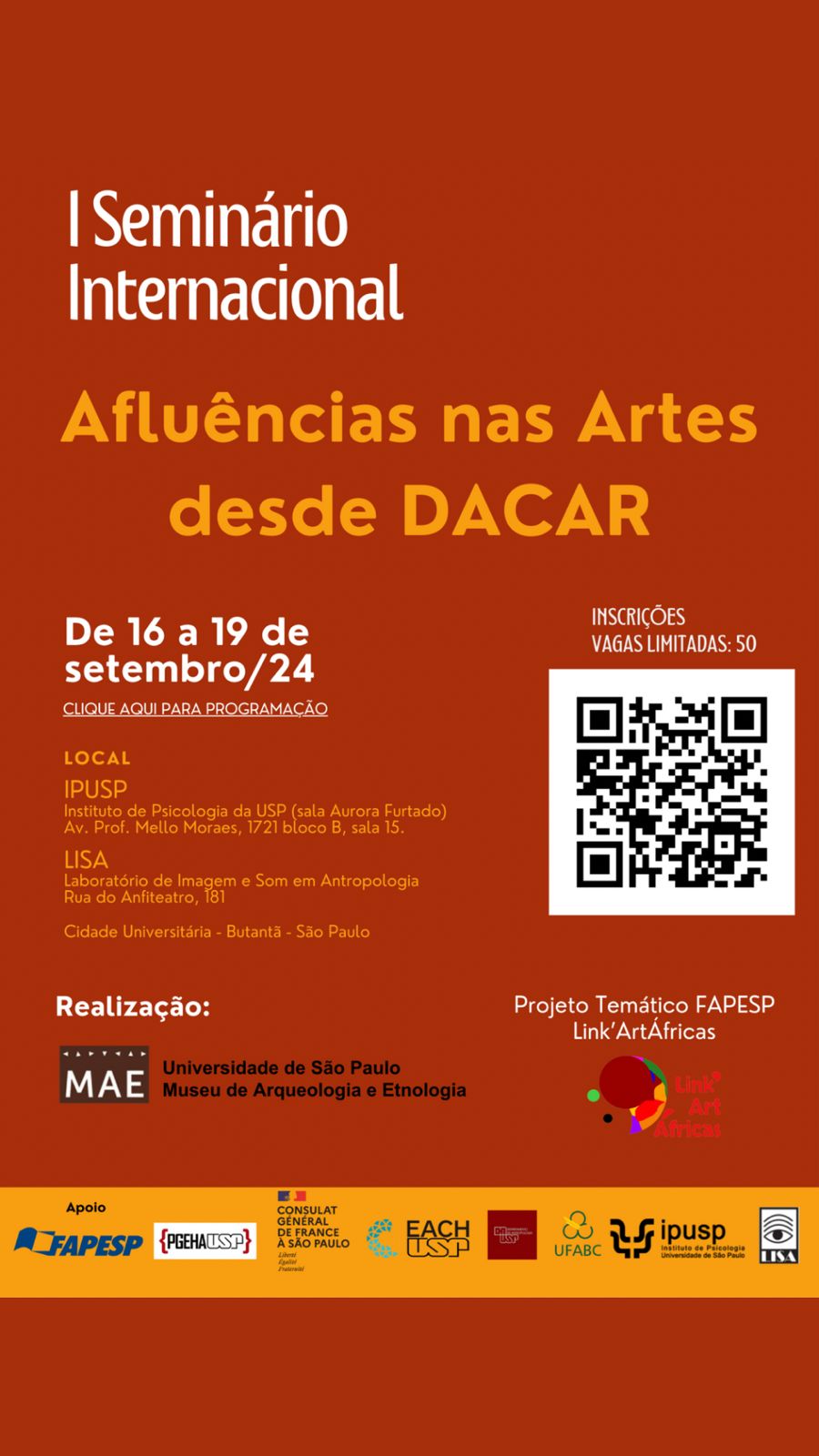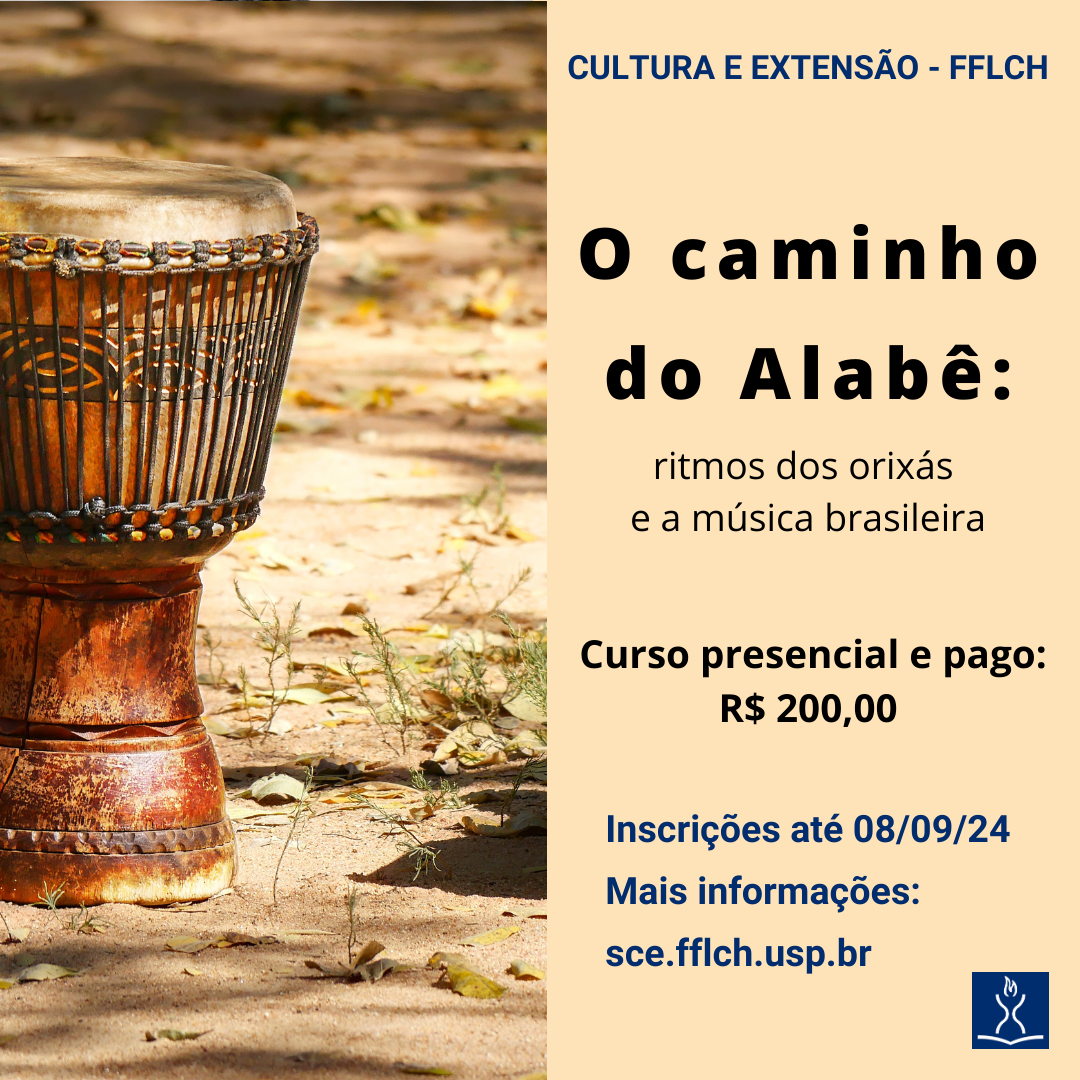Events
Inhabiting fires
Monday, October 14 at 2:00 p.m. - Room 1037
The presentation will be based on the way in which the quilombolas of Jalapão (TO) inhabit the general environment. Instead of establishing static borders, buildings, and individualizing possession, it is a way of living that is expressed through wandering activities in areas with different temporalities of post-fire regeneration. In addition to demonstrating how this way of living broadens our understanding of the conditions of habitability at the time of large forest fires, the presentation will also seek to outline an ethnographic theory of quilombola freedom. In short, it is an experience of freedom that cannot be reduced to ecological autonomy, since it is guided by demands that are more than human, the effects of which have repercussions on a way of relating to fire that goes beyond its control.
Guilherme Fagundes is a professor in the Department of Anthropology at the University of São Paulo, where he leads the Anthropology, Environment and Biotechnodiversity Collective (CHAMA). He works mainly in the areas of technical anthropology and environmental anthropology, in addition to mobilizing the production of films, photographic essays and digital maps as a method of collaborative and multimodal ethnography. Over the last ten years, he has dedicated himself to studying the transformations in forest fires and the resumption of indigenous burning on a global scale, developing research and audiovisual pieces on this topic with quilombola communities, environmental managers and firefighters from the Brazilian Cerrado.
Bibliographic References
FAGUNDES, Guilherme Moura. Fire normativities: environmental conservation and quilombola forms of life in the Brazilian savanna. VIBRANT (FLORIANÓPOLIS), v. 16, p. 1-22, 2019.
INGOLD, Tim. Anthropology comes to life. In: Being alive: essays on movement, knowledge and description. Petrópolis: Vozes, 2015. pp. 25-47
To access the drive with the texts: link to the folder available in our bio on Instagram @naucidades.usp - Linktree . We also have a video showing how to access the folder saved in the 2nd sem-Seminário highlight (also located on Instagram)
Coordination and organization of seminars
Bianca Martins
Michel de Paula Soares
Coordination of the NauCidades Group and support
Jéssica de Souza Andrade
General Coordination
José Guilherme Cantor Magnani
The Ponto.Urbe magazine, a periodical linked to the Laboratory of the Center for Urban Anthropology at USP, announces Urbe em Foco VII! Next Wednesday, October 2nd, starting at 3:00 p.m., in the Anthropology Auditorium (Room 24) of the Social Sciences and Philosophy Building (FFLCH), we will discuss the dossier “Cities at War”, published in our latest issue. Participate! No prior registration required. Certificates will be issued for in-person participants. Check out the participants: Frank Daves and Lia de Mattos Rocha (UERJ) Our cities at war: notes on militarization and coloniality from Rio de Janeiro Carolina Parreiras (DA/LETEC/USP) Digital inequalities in Rio de Janeiro's favelas: uses and infrastructures between precariousness and militarization Apoena Mano (PPGS/USP) Organized crime and urban violence in Latin America Mediation: Silvana Nascimento (PPGAS/USP)
International Study Conference - Techniques of the Body: 90 years of Marcel Mauss's essay
The conference aims to celebrate the ninetieth anniversary of the essay Techniques of the Body (1934), by French anthropologist Marcel Mauss (1872-1950). The event's motivation, through its anniversary, is not exactly to provide a remembrance of the text, but rather to encourage its reinterpretation by the Brazilian public. Often cited in Brazil as an inspiration for the anthropology of the body, the essay is also considered, in France, the founder of the anthropology of technique. This second line of investigation repositions contemporary anxieties surrounding technophobias and techno-utopias, in addition to outlining methodological paths, including audiovisual ones, for the perception and description of the “traditional and effective acts” that constitute technique. In keeping with the interdisciplinarity that characterizes the essay, the event will promote connections between anthropology and archaeology, understanding that Marcel Mauss's emphasis on mastering technique through the body underscores the continuity between the biological, the psychological, and the social.
Check out the schedule complete.
Dates: October 3, 4 and 7
Locations: LISA and FFLCH-USP - IFCH-UNICAMP
Organization:
Collective of Anthropology, Environment and Biotechnodiversity (CHAMA/USP)
Laboratory of Anthropology of Science and Technology (LACT/UNB)
Consulate General of France in São Paulo
Coordination:
Guilherme Moura Fagundes (Department of Anthropology – USP)
Rafael Antunes Almeida (Institute of Humanities – UNILAB)
Prof. Clara Han at USP
Clara Han is a Professor of Anthropology at Johns Hopkins University. Her research focuses on how territories and medical and legal institutions intertwine with intimate life in contexts marked by economic precarity and violence. Han has conducted over two decades of fieldwork in low-income neighborhoods in Santiago, Chile, exploring illness, violence, and kinship under conditions of deprivation. Most recently, she has conducted research in Korea, with a special focus on the Korean War. She is the author of Life in Debt: Times of Care and Violence in Neoliberal Chile and Seeing Like a Child: Inheriting the Korean War, the latter of which won the Senior Prize of the Association for Feminist Anthropology in 2022. Her work addresses the slow shifts in subjectivity, the dynamics of care and neglect in intimate relationships, and how violence is inherited across generations. Han also co-edited the volume Living and Dying in the Contemporary World with Veena Das.
Graduate students are invited to a meeting/debate with anthropologist Clara Han (John Hopkins University, United States).
Professor Clara Han will give a brief presentation of her research trajectory and comment on the ongoing research of the registered people!
Registration until September 29, 2024, at the link: https://forms.gle/
Meeting: October 1, Tuesday, at 2:00 p.m.
Location: FFLCH, Social Sciences (Middle Building), Room 10
Organization: PPGAS/USP - NUMAS/USP - Link’ArtÁfricas Project/Fapesp
In collaboration with: PPGCS/UNIFESP - PAGU/UNICAMP - PgEHA/USP - PCHS/UFABC-Kaleidoscope Project/CNPq
Financial Support: Fapesp, Capes, CNPq
With joy, Sexta do Mês invites everyone to the two thematic tables that will take place in September. The first of them, entitled "Listening and welcoming: experiences of promoting mental health at university", proposes to debate institutional policies and collective practices of care, welcoming and listening that occur within the scope of higher education, with the presence of professors, researchers and students from different public colleges. The panel will take place on September 20th, at 5 pm, in a hybrid format – with live broadcast on the uspfflch channel on YouTube: https://www.youtube.com/live/
Restore, document, repair: thinking about the intersections between indigenous peoples and their collections.
The Study Group "Anthropology of Post-Truth, Denialism and Conspiracy Formations" aims to analyze and discuss, from an anthropological perspective, the phenomena of post-truth, denialism and conspiracy theories.
Meeting theme: "Pragmatic Encounters" vs. denialism
The group will discuss the following text:
ALMEIDA, Mauro W. Barbosa de. Ontological Anarchism and Truth in the Anthropocene. Ilha Revista de Antropologia, Florianópolis, v. 23, n. 1, p. 10–29, 2021.
https://periodicos.ufsc.br/
Date: September 19, 2024
Time: 5:00 p.m. to 6:45 p.m.
Location: Social Sciences Building, room 1039 (in the corridor of the Anthropology Department) - Address: Avenida Professor Luciano Gualberto, 315, Cidade Universitária
Target audience: The group is open to the university community.
Registration: Registration can be done by email: almeida.rafaelantunes@gmail.
Mediation: Rafael Antunes Almeida (Post-doctoral student in the Department of Anthropology at USP and Professor at the University of International Integration of Afro-Brazilian Lusophony - UNILAB)
Dear all,
We invite you to the 1st International Seminar on Influences in the Arts from Dakar, held by the USP Museum of Archaeology and Ethnology and the thematic project Link'Art Africas (FAPESP), which will bring together researchers from Senegalese, French and Brazilian institutions from September 16 to 19, 2024, in the city of São Paulo.
In the attachment, you can check the schedule and the link to register.here
The event will be held in person and the panels will have simultaneous translation from Portuguese to French and from French to Portuguese.
Sincerely,
Organizing Committee
The course addresses the rhythms of the Orixás, with their dances and musical manifestations, including their influence on Brazilian music. The theme and reference will be the instrumentalists/priests of the Orixás, fundamental in Brazilian musicality. The dialogues offered in these meetings are based on the self-taught methodology of the Solano Trindade Family, with the fusion of theory and practice, and the proposal of movement, sound and well-being as epistemology.
Coordination
Prof Rose Satiko Gitirana Hikiji, from FFLCH
Instructor(s)
Vitor Israel Trindade de Souza
Elis Sibere dos Santos Monte Trindade de Souza
The Center for Amerindian Studies invites you to our event:
Lecture with
Renato Sztutman (PPGAS-USP)
Karen Shiratori (PPGAS-USP)
Emanuele Fabiano (École des Hautes Études en Sciences Sociales - EHESS)
"Plant insurgencies against the palm empire: preliminary notes on a breeding experiment in Ucayali"
The event will feature a screening of the film "Bakish Rao: plants in struggle" (Denilson Baniwa and Comando Matico, 2023)
Wednesday, 09/11/2024 - 3:00 p.m.
LISA Auditorium (Image and Sound Laboratory in Anthropology)
Anfiteatro Street, 181 - Colmeia 10


